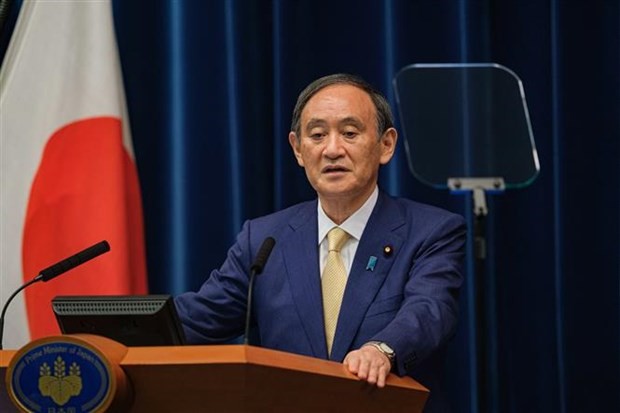(VOVWORLD) - Eyes have been turning to Japanese politics since Prime Minister Yoshihide Suga announced he is going to resign. Of particular concern is who will succeed Mr. Suga and how will the next leader cope with Japan’s current problems.
 Prime Minister Yoshihide Suga at a press conference in Tokyo (Photo: AFP/VNA) Prime Minister Yoshihide Suga at a press conference in Tokyo (Photo: AFP/VNA) |
Prime Minister Yoshihide Suga told a meeting of the ruling Liberal Democratic Party (LDP) last Friday that he will not seek re-election as head of the party in this month’s election. That announcement effectively means he is resigning.
Prime Minister Yoshihide Suga’s resignation
Suga won a Lower House election on September 16, 2020, when he was chief cabinet secretary, to succeed Prime Minister Shinzo Abe, who resigned because of poor health. At the time he was sworn into office as Prime Minister, public support for the Japanese cabinet was over 70%, revealing high public expectations for the new Prime Minister in national administration and particularly COVID-19 containment.
But the advent of the Delta coronavirus variant has worsened the pandemic and its impact on Japan’s economy and people’s lives. Nikkei's COVID-19 Recovery Index in August ranked the Japanese economy 72nd out of 121 countries and regions, creating a problem for Prime Minister Suga and his cabinet. In one year the cabinet’s approval rating has plummeted to 30 percent, a low not seen in many years.
Suga says he wants to spend his remaining time in office focusing on the government's COVID-19 response rather than campaigning for reelection.
Challenges
In Japan it’s normal for politicians, including Prime Ministers, to resign. Suga’s decision to step down after one year in office is not rare. From 2006 to 2012, Japan had 6 Prime Ministers.
Prime Minister Hata Tsutomu lasted 2 months in office, from April to June 1994. Prime Minister Abe held the post for just 1 year during his first term in office from 2006-2007.
 Former Foreign Minister Fumio Kishida (Photo: AP) Former Foreign Minister Fumio Kishida (Photo: AP) |
So who will succeed Suga to lead the LDP and be the Japanese Prime Minister? The Japanese media has mentioned several candidates: former Foreign Minister Fumio Kishida, former Internal Affairs and Communications Minister Sanae Takaichi, Minister of Administrative Reforms Taro Kono, former Defense Minister Shigeru Ishiba, and perhaps former Prime Minister Shinzo Abe.
Analysts say whoever becomes the new LDP leader after the vote in late September will face many challenges. His first task will be to win in the general election at a moment when support for the LDP has declined. Then he will have to handle the COVID-19 pandemic, get the economy back on track, and try to maintain Japan’s global standing as a leading economy.